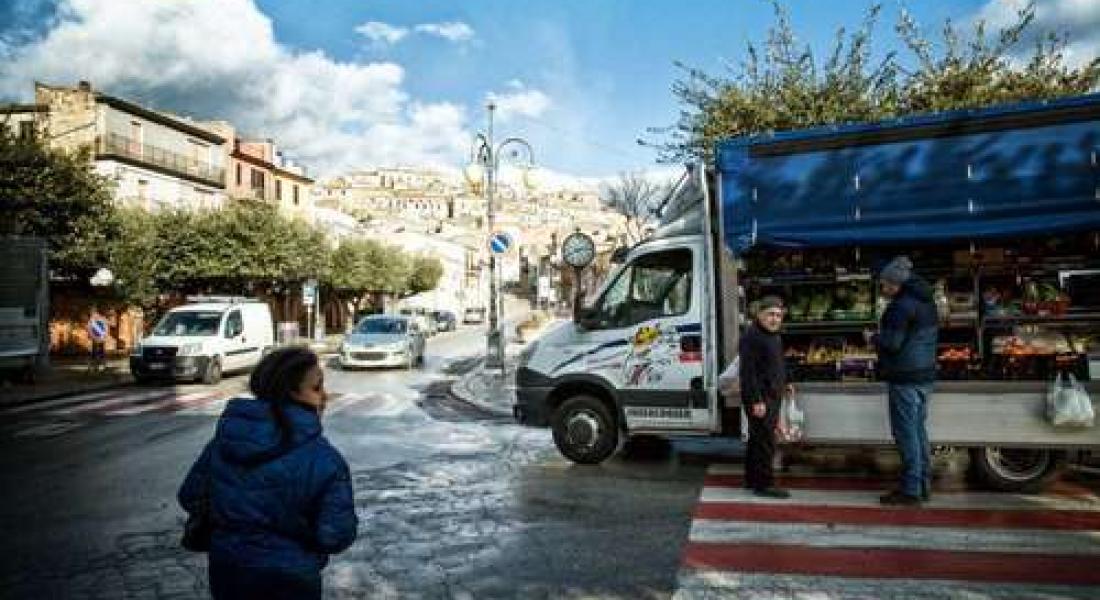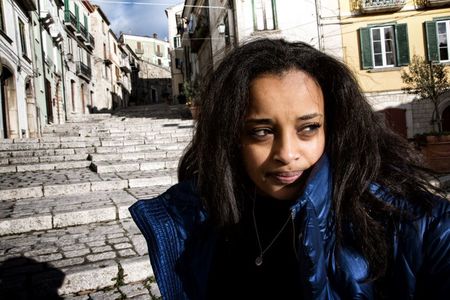
When she imagined Italy, a young Eritrean woman named Danait never pictured the quaint and quiet hillside town of Trivento.
“At the beginning, coming to Italy seemed like a dream, then when we arrived, we felt pretty lost,” shares Danait.
Coming from Addis Ababa, a megalopolis of 10 million people, Danait found it quite shocking to be placed into a small remote city with less than 5,000 inhabitants. Just three months ago, Trivento became home for Danait and her mother, Saba. A depopulated city, Trivento lacks the vibrant group of young people that shaped Danait’s social life in her hometown. Guisepina and Domenico, a host family through the Caritas program, opened their home to host Danait and Saba. Caritas is an international Catholic service organization that, among many other services, helps refugees settle and find a home in Italy. As a newly formed family, they enjoy Sunday lunches and discussing the works of Hemingway and Pirandello.
“They are now an integral part of our home,” reflects Domenico.
Though she speaks fluent Italian, adjusting to this new life has been very challenging. Danait reflects on her first day when Domenico brought her to the local coffee shop. She was sweating and shaking from nerves.
“I never felt so scrutinized like this before, never ever,” she says.
Domencio explains that the local people of Trivento are very suspicious of people they don’t know. It’s a stark change from just a few years ago. A local member of Caritas explains that though the Catholic organization provides support for many social issues like poverty and immigration, it is the role of local churches and parishes to discuss how everyone can be involved in creating a welcoming environment. Danait asks others to open their hearts and reflect on the reasons someone might leave their own country.
“It’s not a journey for leisure,” she emphasizes.
Like Danait and Saba, each new refugee to Italy has a different, very personal story filled with a mix of hope and new challenges. Human Lines, a new web documentary led by Kellogg Faculty Ilaria Schnyder von Wartensee is a part of the Humanitarian Corridor Initiative, which began after an agreement was signed by the Italian government and several religious and non-governmental organizations. The initiative provides a small number of refugees with safe travel and visas to Italy, along with housing and resettlement assistance upon arrival. Schnyder, in collaboration with Notre Dame Colleagues, has been studying integration of migrants in Italy and the role of the Catholic Church and is leading many of the research efforts relative to the Humanitarian Corridor Initiative.
By bringing light to the personal experience of refugees around Italy, Human Lines aims to relay the complexity of the journey many refugees take to their new home in Italy.
“The intent is to bring light to how these encounters happen, how these lines meet,” says Schnyder.
Recently, LinebyLine news updates on the Human Lines website follow how COVID-19 is impacting refugees, social workers, and volunteers. She explains how the recent lockdown brings back memories of being on lockdown in her own country for six months due to fears of being captured by the army.

(Photo taken by Max Hirzel, Human Lines photographer.)
“Everyday was a nightmare,” Danait says. “And yet, that is the past.”
To her, Italy represents courage; a home not only to Italian citizens, but also to refugees.
Since the fall of 2018, Human Lines has been an ongoing collaboration between the Kellogg Institute and the Rome Global Gateway. Currently two Notre Dame students, Sarah Herbers and Emma Ackerley, are supporting this project.
Herbers ‘21 is majoring in Applied and Computational Mathematics & Statistics (ACMS), with a supplemental major in Italian Studies. She is a Spring 2020 Rome International Scholar who selected Human Lines as her semester-long internship. Ackerley ‘23 is a research assistant from the main campus. She hasn’t selected a major yet but her interests are in sociology and global affairs. Though they now contribute virtually, both have been able to make a substantial impact. Both have been instrumental in preparing and proofreading the website and editing and translating videos and other documents for Human Lines.
“It's easy to say that you can't relate to a refugee when you haven't suffered in the same ways as they have, but today we are all going through the same isolation. By providing these stories, HumanLines is reminding me that, even now, we aren't alone." ”This work has been one of the best parts of my day now because the interviews always touch on some aspect of optimism, hope, and perseverance,” comments Herbers.
Schnyder explains that her team plans to continue to follow and support refugees, social workers, and volunteers and use the Human Lines website to provide a unique insight into the current situation. In the future, Schnyder hopes to reach out to other key informants on the Humanitarian Corridor, representatives from the United Nations High Commissioner for Refugees (UNHCR), scholars, journalists to provide new perspectives on the Human Lines website.
"Human Lines for me is a creative and impactful tool first to give space to the 'gazes' and 'voices' of the protagonists (refugees, social workers, and volunteers), and second, to show in an honest and interesting fashion the complexity of the welcoming and integration process, which is not a fairy tale," elaborates Schnyder.
Experience the Human Lines web documentary for yourself.
This story originally appeared at rome.nd.edu.





